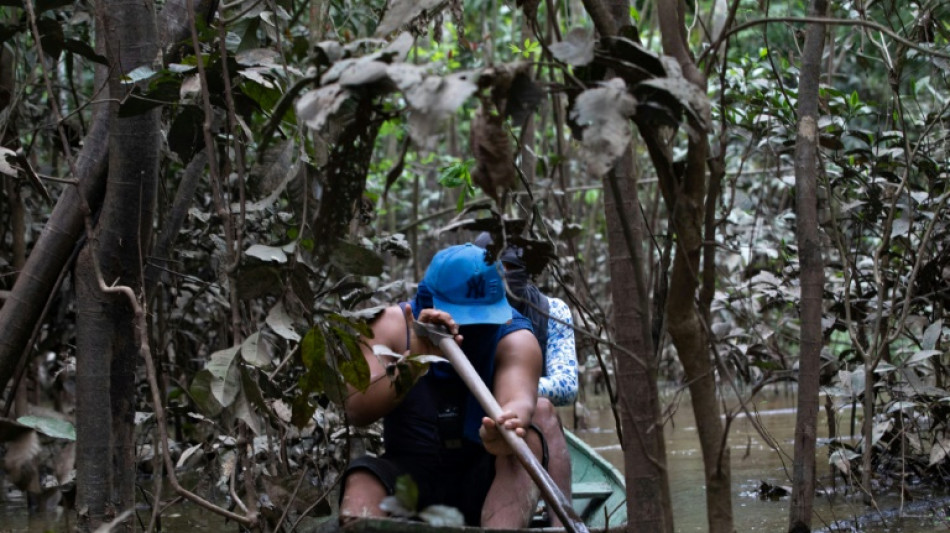
-
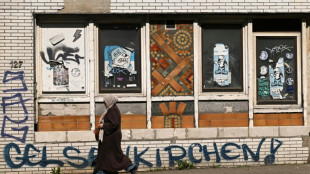 West German foothold of far-right AfD shows challenge for Merz
West German foothold of far-right AfD shows challenge for Merz
-
Maldives president holds record 15-hour press conference
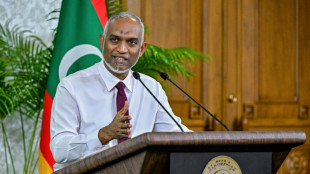
-
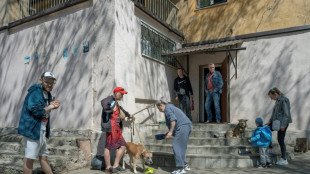 'Accept me': Near Ukraine front, a haven for outcasts
'Accept me': Near Ukraine front, a haven for outcasts
-
Canelo Alvarez unifies super middleweight titles on Saudi Arabia debut
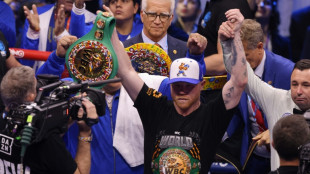
-
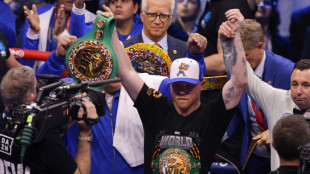 Canelo Alvarez unifes super middleweight titles on Saudi Arabia debut
Canelo Alvarez unifes super middleweight titles on Saudi Arabia debut
-
US Fed expected to pause cuts again and wait for clarity on tariffs
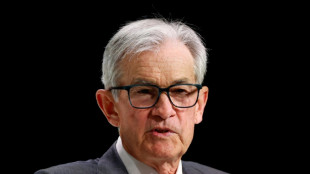
-
 Ex-Liverpool star Firmino 'proud' after more Champions League history
Ex-Liverpool star Firmino 'proud' after more Champions League history
-
Australian PM basks in win, vows 'orderly' government

-
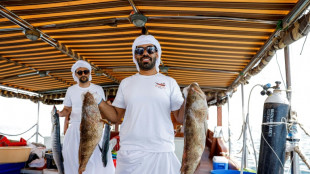 Qataris hooked on traditional fishing competition
Qataris hooked on traditional fishing competition
-
Mozart chocolate row leaves bitter taste in Austria
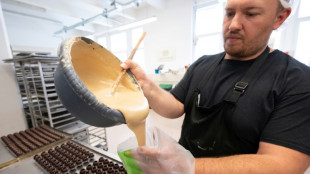
-
 US solar tariffs could drive Asia transition boom
US solar tariffs could drive Asia transition boom
-
Four-try Hurricane Sullivan says revenge fuelled Chiefs upset

-
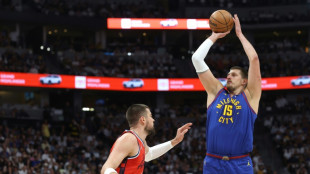 Nuggets rout Clippers to advance in NBA playoffs
Nuggets rout Clippers to advance in NBA playoffs
-
Scheffler shines in dark for eight-shot CJ Cup Byron Nelson lead
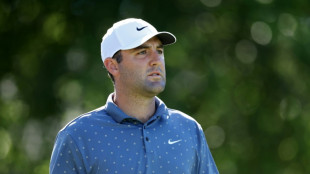
-
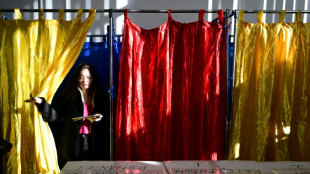 Romania returns to polls after annulled presidential vote
Romania returns to polls after annulled presidential vote
-
Easy vote turns Musk's dreams for Starbase city in Texas into reality
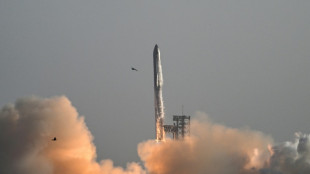
-
 Messi and Miami bounce back with 4-1 crushing of Red Bulls
Messi and Miami bounce back with 4-1 crushing of Red Bulls
-
US researchers seek to legitimize AI mental health care
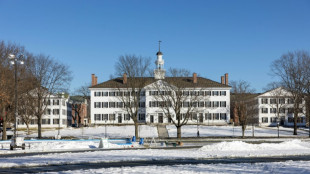
-
 Ryu clings to two-shot lead at LPGA Black Desert Championship
Ryu clings to two-shot lead at LPGA Black Desert Championship
-
Ledecky, Walsh cap Pro Swim meet with world records

-
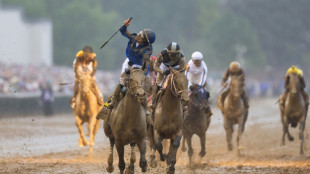 Sovereignty rules in 151st Kentucky Derby
Sovereignty rules in 151st Kentucky Derby
-
McLaughlin-Levrone sets world's fastest of year in 400m hurdles

-
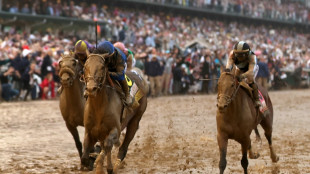 Sovereignty wins 151st Kentucky Derby
Sovereignty wins 151st Kentucky Derby
-
US swim star Ledecky smashes her longstanding 800m freestyle world record

-
 Antonelli's teenage pace impresses Verstappen
Antonelli's teenage pace impresses Verstappen
-
From stronghold guarded by backers, Bolivia ex-leader plots return
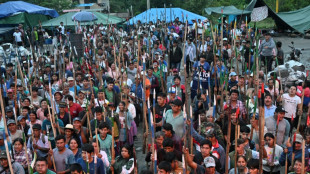
-
 Barca stay on Liga title track with Valladolid comeback
Barca stay on Liga title track with Valladolid comeback
-
Israel calls up tens of thousands of reservists for Gaza offensive

-
 Verstappen takes pole position for Miami Grand Prix
Verstappen takes pole position for Miami Grand Prix
-
Williams beats Trump to set up World Snooker final with Zhao

-
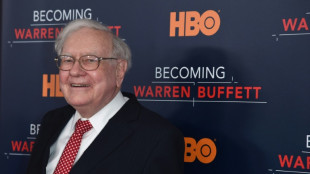 Warren Buffett to retire from Berkshire Hathaway by year's end
Warren Buffett to retire from Berkshire Hathaway by year's end
-
Barca battle back at Valladolid to preserve Liga title charge

-
 'Like a dream' says dominant Sabalenka after third Madrid title
'Like a dream' says dominant Sabalenka after third Madrid title
-
Napoli move step closer to Serie A crown after win at fiery Lecce

-
 Williams beats Trump to set up World Snooker final with Zhao Xintong
Williams beats Trump to set up World Snooker final with Zhao Xintong
-
Eurovision limbers up with over-60s disco
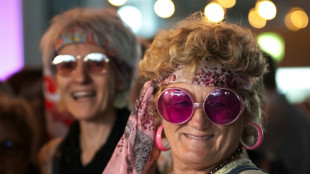
-
 'Surreal' Freeman hat-trick stuns Leinster to take Northampton into Champions Cup final
'Surreal' Freeman hat-trick stuns Leinster to take Northampton into Champions Cup final
-
Huge crowds head to Copacabana for free Lady Gaga concert
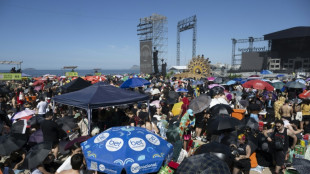
-
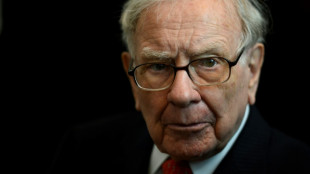 Warren Buffett: billionaire investor with simple tastes
Warren Buffett: billionaire investor with simple tastes
-
Serbian president out of hospital after cutting short US trip
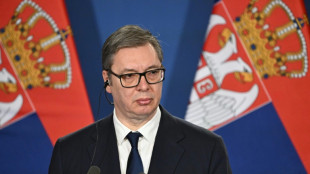
-
 Arsenal rocked by Bournemouth, Villa boost top five bid
Arsenal rocked by Bournemouth, Villa boost top five bid
-
Freeman hat-trick stuns Leinster to take Northampton into Champions Cup final

-
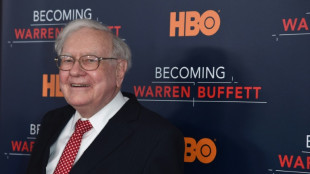 Warren Buffett says will retire from Berkshire Hathaway by year's end
Warren Buffett says will retire from Berkshire Hathaway by year's end
-
Al Ahli beat Kawasaki Frontale to win Asian Champions League

-
 Shepherd, Dayal edge Bengaluru past Chennai in IPL thriller
Shepherd, Dayal edge Bengaluru past Chennai in IPL thriller
-
Sabalenka beats Gauff to win third Madrid Open crown

-
 Arsenal suffer Bournemouth defeat ahead of PSG showdown
Arsenal suffer Bournemouth defeat ahead of PSG showdown
-
Napoli six clear in Serie A after win at fiery Lecce

-
 Van Nistelrooy glad as Leicester end goal drought against sorry Saints
Van Nistelrooy glad as Leicester end goal drought against sorry Saints
-
Meta fighting Nigerian fines, warns could shut Facebook, Instagram


How Brazil's Javari Valley became a criminal haven
The far-flung Amazon region where a British journalist and a Brazilian indigenous expert disappeared has become a haven for drug trafficking and environmental crimes because of increasing lawlessness and an absent state, experts say.
The Javari Valley, where veteran correspondent Dom Phillips and respected indigenous specialist Bruno Pereira disappeared on June 5, is one of the remotest places on Earth, a vast expanse of thick jungle in northwestern Brazil near the Peruvian and Colombian borders.
Phillips, 57, and Pereira, 41, were last seen boating up the Itaquai river just outside the Javari Valley Indigenous Reservation, a territory bigger than Austria that is home to an estimated 6,300 indigenous inhabitants, including 19 uncontacted tribes.
The region is suffering from a surge of criminal activity, blamed on drug gangs with links to other crimes including illegal fishing on indigenous lands -- something Pereira had long fought, making him a target of death threats.
The men's disappearance remains unsolved, but investigators have found their belongings and are analyzing suspected human remains, fueling fears they were murdered.
A suspect has been arrested.
Experts on the Javari Valley told AFP drug gangs and illegal mining, logging and poaching rings have capitalized on weaker enforcement by Brazilian authorities in recent years to expand their presence.
"What happened to Bruno and Dom is the result of an increase in organized crime, which is in turn explained by the absence of the state," said Antenor Vaz, head of Brazilian indigenous affairs agency FUNAI's operations in the region from 2006 to 2009.
- Attractive base -
The very things complicating the investigation are what make the region an attractive base for criminal operations.
The region is hard to reach, and harder to patrol: huge, remote, densely forested and criss-crossed by meandering rivers that flood the surrounding area for several months a year.
"By its very nature, the forest has always been an attractive space for drug traffickers, since they can camouflage drugs so easily," said Aiala Colares, a geographer and Amazon expert at the Federal University of Para.
Since the 1990s, drug gangs have used the region's rivers to ship cocaine and other drugs from Peru and Colombia, for both the Brazilian and international markets, he said.
That traffic has increased substantially over the past decade.
Drug gangs operating in the region are "multidimensional" outfits, with operations that also include illegal logging and fishing, Colares said.
The main group, "Os Crias," emerged in 2021 as a splinter from the Northern Family, one of the biggest criminal organizations in the Amazon basin.
They now dominate the triple border on the Brazilian side and the Javari trafficking routes, Colares said.
- Poverty, impunity -
The gangs feed off a long history of poverty and impunity in the region, now exacerbated by a power vacuum left by the state, said anthropologist Barbara Arisi of Vrije Universiteit in Amsterdam, a specialist in the indigenous peoples of the Javari Valley.
"A growing number of criminals, more and more organized and better-armed, are taking advantage of the lack of state structure," she said.
The gangs have even penetrated some indigenous groups, such as the Tikuna, she said.
Just like in big-city slums, "drug trafficking offers lots of young people a life they could never attain otherwise," she said.
Poverty has helped the gangs thrive.
The small city of Atalaia do Norte, the local outpost Phillips and Pereira were returning to, has the third-worst human development index in Brazil.
Enforcement operations by environmental authorities have meanwhile been reduced since President Jair Bolsonaro took office in 2019.
The far-right president, who has pushed to develop the Amazon -- "rich lands" with "poor Indians," in his words -- has also brought upheaval at FUNAI.
Since he replaced the indigenous affairs agency's leadership, many veteran officers have been forced out or quit.
That includes Pereira, the one-time head of FUNAI's Javari operations and its programs for isolated tribes, who was placed on administrative leave.
FUNAI's base in the area has meanwhile been a target of several shooting attacks in recent years.
In 2019, FUNAI's anti-logging and anti-poaching chief for the Javari Valley was shot dead in the city of Tabatinga.
The case remains unsolved.
M.Fischer--AMWN